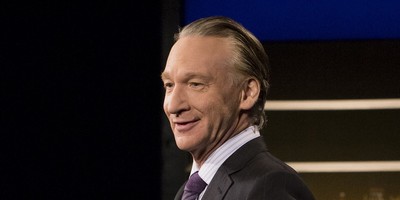With government at every level desperately seeking more revenue to cope with soaring deficits, citizens should evaluate all tax proposals according to two crucial principles: It's better to tax choices than necessities, and bad choices deserve taxation more than good choices. For one thing, these distinctions will help resolve raging debates over efforts to impose new costs on sugary soda, bottled water, candy, tanning salons and other indulgences.
Of course, tea party supporters and other conservatives are right to resist all governmental attempts to spend more money, and to make the point that local, state and federal governments shouldn't get the public to pay more, but force bureaucrats to spend less.But even with radical spending cuts, free-market advocates understand the urgent need for tax restructuring, and in that context, it makes sense to apply the bad-choices-versus-necessities standard to any potential tax plans.
For instance, most people rightly recoil at the idea of taxing basic foodstuffs, which everyone needs, but grudgingly accept taxes on cigarettes and booze, which represent personal choices of dubious value. If you strongly prefer to avoid paying extra money to the government, you can give up your drinking or smoking habits, but you can't give up your habit of regularly consuming a certain amount of nutritious food.
While taxing choices always counts as preferable to taxing necessities, it's also appropriate to draw distinctions between good choices and bad choices. For instance, giving to charity or setting aside income for retirement may not constitute necessities, but those choices bring individual and public benefits and so receive privileged treatment by the tax system. But the choice to consume soda and candy deserves no such protection from taxation. Despite the claims of soft drink manufacturers, there are no known benefits to consumption of their products, and no one needs to guzzle Coke or Sierra Mist.
Recommended
Government appropriately considers public health issues with its special taxes on tobacco and booze, and scientific evidence on the destructive impact of soda and other high-calorie/low-nutrition snacks is nearly as solid as research on tobacco's costs. With government assuming bigger shares of the public's medical bills, it makes sense to tax unhealthful habits to help pay for the damage they cause.
For policy makers, taxing bad choices isn't a meddling matter of deciding what's best for each individual as much as it's a question of considering the broader social impact of personal choices. The public costs of a populace that is alcoholic, tobacco addicted and increasingly obese are too obvious to deny.
The same distinction between beneficial and destructive choices informs the core conservative argument against progressive income taxes. Right now, we punish people with higher tax rates when they make the positive choice to work harder and earn more. Defenders of the status quo might argue that earning income at a subsistence level is a necessity, not a choice, so it is rightly tax exempt -- we exclude the first $20,000 or so (or more, depending on your family circumstances). But if you choose to earn a higher income and bring home more than you need for a minimal standard of living, you pay taxes on those extra earnings with rates that increase along with your income.
This argument in effect treats increased productivity and prosperity as a bad habit, like cigarettes and alcohol. Taxation always involves discouragement of any activity subject to those additional costs. As rates increase, the discouragement becomes more powerful and effective. The reduction in smoking rates (closely tracking steep increases in cigarette taxes) demonstrates the potent impact of tax policy in steering behavior. So why accept a tax policy that penalizes hard work and productivity? The more an individual earns, the more he benefits the community at large through his wealth-creating, job-creating activity. Even if conservatives succeed in our impassioned efforts to shrink government, officials at every level still need to raise revenue by taxing one thing or another.
With that in mind, it makes little sense to punish people for doing what they need to do to take care of themselves, or to discourage choices -- like hard work and canny investment -- that benefit the community. Leaders may argue about the specific advisability of taxing soda or Snickers, tanning salons or gas-guzzling vehicles, but as a general principle, it makes more sense to attach new costs to questionable choices and luxuries than to burden either beneficial behavior or the struggle for simple survival.

























Join the conversation as a VIP Member